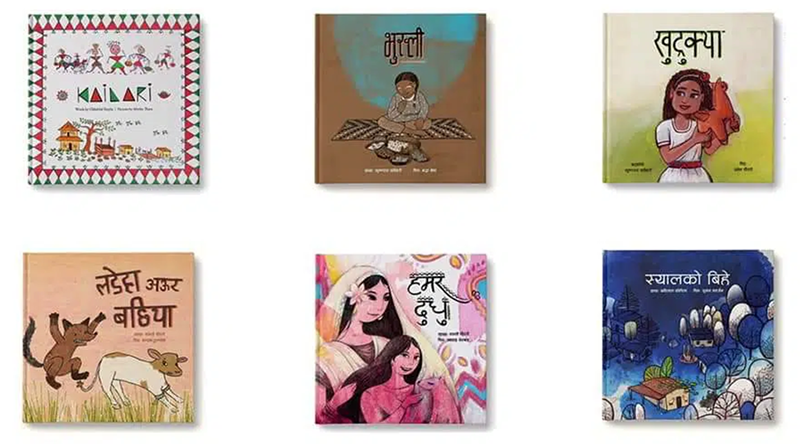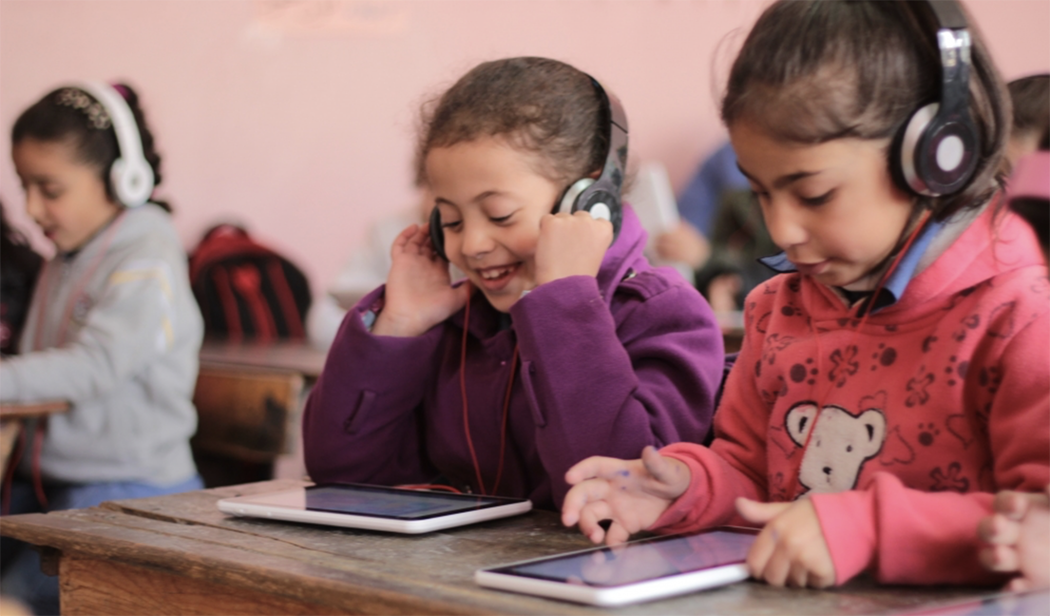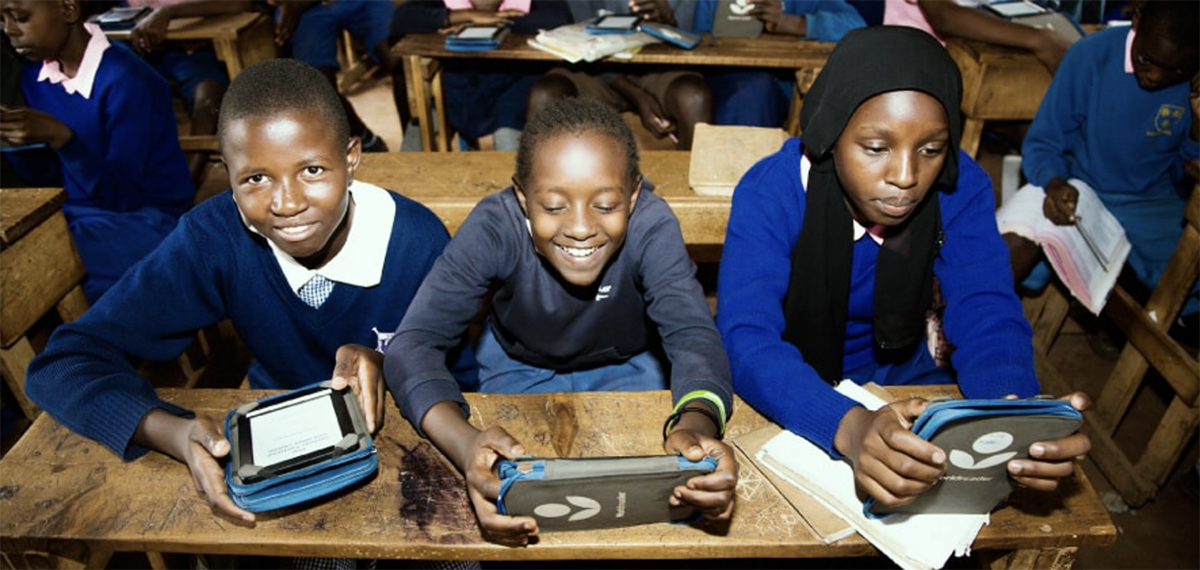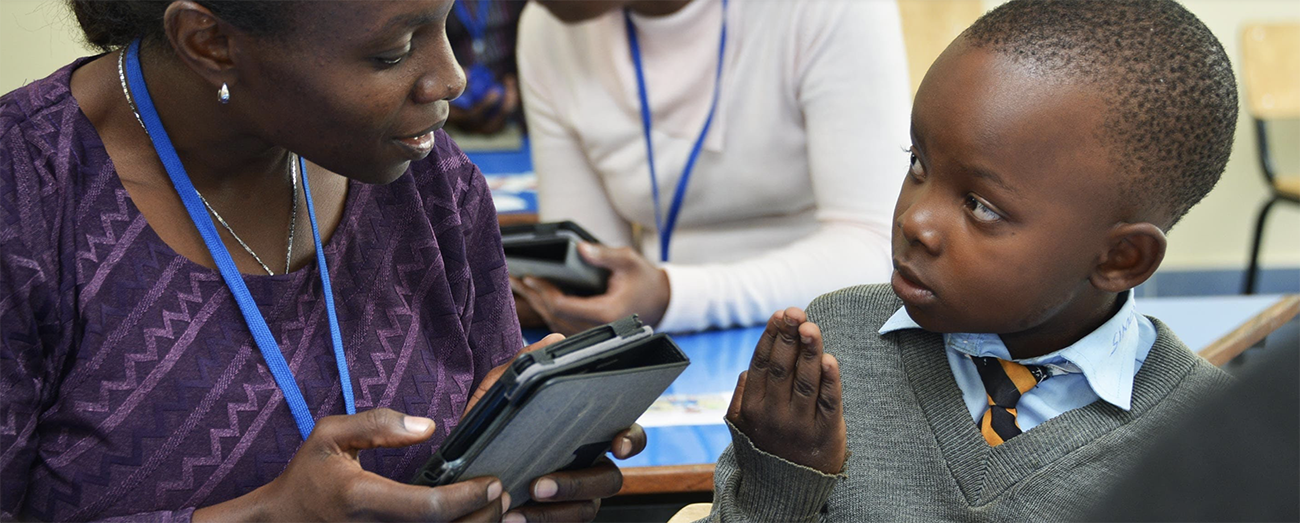Do you remember what the moon tastes like? And what was wrong with Elmer the colourful elephant? Did you know that a child’s passion for reading is a better predictor of academic success than his or her family’s socio-economic status? (OECD, 2002) What if the love of reading and books could help solve some of the major problems of 21st century societies? What if instead of threats, state visits and international summits we could use stories to address the challenges of this century?
We are not crazy. Science backs us up. It’s called the Book Effect and it says that, in addition to the obvious benefits that a love of reading has on children’s cognitive and emotional development, books are a powerful tool for building more collaborative and tolerant societies.
In his article The Book Effect child development specialist Morgan Belveal explains that when children discover themselves in the pages of books, they begin to trust their own identity and their potential to contribute to society. Books that introduce children to the immense diversity of the world’s identities can cultivate empathy, tolerance, respect and a richer understanding and acceptance of other cultures. The unique ability of books to act as mirrors that reflect our own identities and as windows into the experiences of others (Belveal, 2019).
Unfortunately, however, not all children have the same opportunities to develop a love of reading. Such a basic and elementary gesture as opening a story and starting to read is something that millions of children on the planet cannot do. Not only because conditions do not support them (when famine or war ravages a country, children’s reading falls very low on a society’s basic priorities), but also because the availability of children’s books in some cultures and languages is virtually non-existent.
Take Nepal, for example, a country where, according to the 2011 census, there are 123 different languages. Publishing a book in one of these languages is not profitable for any publisher and too expensive for local NGOs. As a result, in many parts of the world today, there are no stories with which children can fall in love with their characters and cultivate their love of reading.
To solve this problem, Let’s Read was born, an initiative of The Asia Foundation which has created an unprecedented digital library of books in 50 different Asian languages as well as English.
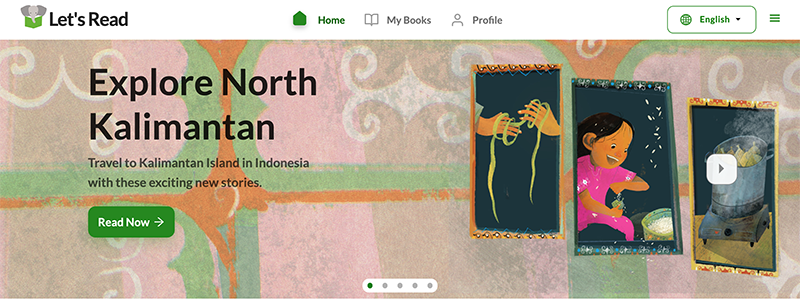
How does it work?
Let’s Read works with a network of authors, illustrators and translators capable of producing high quality children’s books that reflect local languages and cultures. And, of course, it uses the power of technology to create equitable access to the transformative power of books.
- They work through BookLabs that bring together authors, illustrators and publishers in different languages.
- The books are shared throughout the region through translation by local volunteers, supported by experts who ensure that the stories do not lose their narrative focus.
- Partnerships connect with community organisations, educators, publishers and universities to source content and create a sustainable local solution.
The tool’s interface is intuitive, it is also available as an application for Android and Apple and offers access to the library where we can find books classified by a grid that shows a presentation card for each one of them. Entering the file we find detailed information about the book, reading level, publisher, illustrator, editor, designer, language, type of Creative Commons licence and access to the place where the original work on which the translation and adaptation is based can be found. Collaborators are also classified according to their profile.
More than 8000 books in 15 categories
Specifically, 8,364 books distributed in 15 categories including STEM, critical thinking, animals, problem-solving, empowered girls, health, folk tales, among others. And as a fundamental added value, due to the difficulties of internet connection in the regions where the project is implemented, each book can be downloaded and printed for use without the need for internet access.
According to the International Reading Association, children who will become adults in the 21st century “will read and write more than at any other time in human history. They will need advanced levels of literacy to perform their jobs, run their households, act as citizens and lead their personal lives. They will need to be literate to cope with the avalanche of information they will find everywhere. They will need literacy to fuel their imagination in order to create the world of the future. In a complex and sometimes even dangerous world, their reading skills can be crucial” (Moore et al., 1999).
Building these literacy skills in every child on the planet has never been more important than it is today. Technology has proven to be a very good ally to help in this task and initiatives such as this one are proof of that. Supporting and replicating them will contribute to improving opportunities for millions of people.
REFERENCES
Clark, C. and K. Rumbold. (2006). Reading for pleasure: A research overview. National Literacy Trust https://files.eric.ed.gov/fulltext/ED496343.pdf
Moore, D.W., Bean, T.W., Birdyshaw, D. and Rycik, J. (1999). Adolescent literacy: A
position statement. International Reading Association https://eric.ed.gov/?id=ED437640
OECD. (2002). Reading for change. Performance and engagement across countries. Results from PISA 2000. OECD. https://files.eric.ed.gov/fulltext/ED496343.pdf
Sullivan, A. (2015). The life-long benefits of reading for pleasure. The School Librarian. Volume 63, No. 1, (Spring 2015): 5-6. https://www.stratfordcollege.ie/content/archive/LifeLongReadingForPleasure-March2015.pdf



